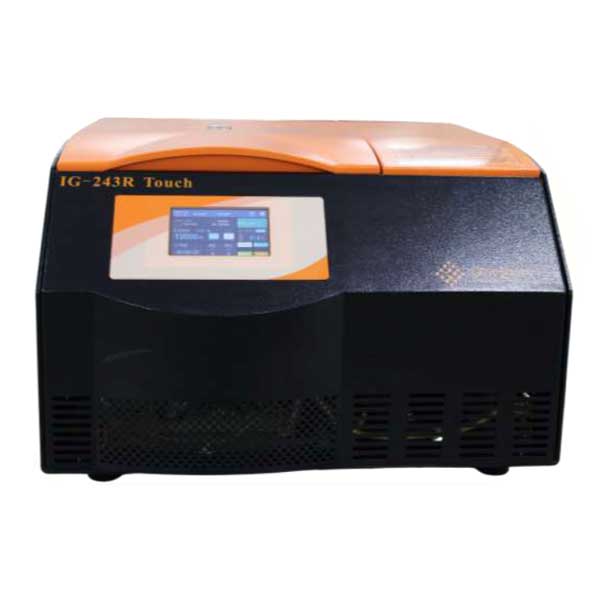High-speed cooling centrifuges are advanced laboratory devices that use centrifugal force to quickly separate materials with varied densities from a sample while keeping the temperature under control. Allow this post to explain how it operates in detail.
High-speed cooling centrifuge is a remarkable piece of scientific equipment for extracting particles from suspensions according to their density. Frequently reaching tens of thousands of revolutions per minute (RPM), these centrifuges run at incredibly high speeds. Allow me to demonstrate their operation and show you how a High Speed Cooling Centrifuge function:

Setup: A rotor that can hold sample tubes and a chamber that the rotor is placed in make up a high-speed cooling centrifuge. The chamber has temperature management technology, which frequently uses a cooling system to keep the temperature low when the device is in use.
Sample loading: Researchers fill special tubes with materials made to resist the pressures produced by centrifugation. To ensure the centrifuge doesn’t operate improperly, these tubes are precisely balanced inside the rotor.
Starting the Centrifuge: After the samples are added and the lid is firmly closed, the operator adjusts the centrifugation process’s speed and duration.
Acceleration: The centrifuge accelerates quickly, taking just a few seconds to reach its top speed. The particles in the sample are forced outward along the radial axis by centrifugal force, which is produced by this acceleration.
Separation: Denser particles move outward faster than lighter ones while the centrifuge spins. Because of this movement, the sample’s constituent parts divide into different layers inside the tube according to their densities.
Cooling Mechanism: During the centrifugation process, a cooling mechanism in high-speed cooling centrifuges keeps the chamber temperature low. By doing this, heat accumulation is avoided, which might damage or change the characteristics of delicate samples.
Collection: The centrifuge progressively slows down once the centrifugation process is finished, enabling the separated components to settle. The sample tubes are gently taken out of the rotor by the operator, taking care not to damage the separated layers.
Analysis: Depending on the goals of the experiment, the separated components can then be further examined separately or collectively. Centrifugation, for instance, is frequently employed in scientific studies to separate certain cellular components like proteins, DNA, or organelles.
It can be fascinating to see a high-speed cooling centrifuge in action because of how precisely the temperature is controlled as the rotor spins quickly. These centrifuges are extremely useful instruments in many scientific fields, including chemistry and molecular biology, because of their effectiveness and speed.
Applications of high-speed cooling centrifuges include:
Biomolecule purification and isolation: Proteins, nucleic acids, and other biomolecules are often extracted from complicated mixtures using high-speed cooling centrifuges.
Cellular fractionation: Using these centrifuges, researchers may separate particular organelles or cellular constituents from cell lysates in order to do further analyses.
Viral purification: Viral particles from biological samples are concentrated and purified in virology labs using high-speed cooling centrifuges.
Density gradient centrifugation: This method uses density gradient medium to separate molecules or particles according to their buoyant densities.
Drug discovery and development: Pharmaceutical researchers utilize these centrifuges for drug formulation studies, stability testing, and quality control analysis .
All things considered, high-speed cooling centrifuges are essential to contemporary scientific study because they make it possible to separate biological samples quickly and effectively while preserving accurate temperature.
Get in touch with IGeneLabserve if you’re having trouble locating a trustworthy source for a high-speed cooling centrifuge. To chat with someone, stop by our website at https://www.igenels.com or give us a call at 09310696848.

